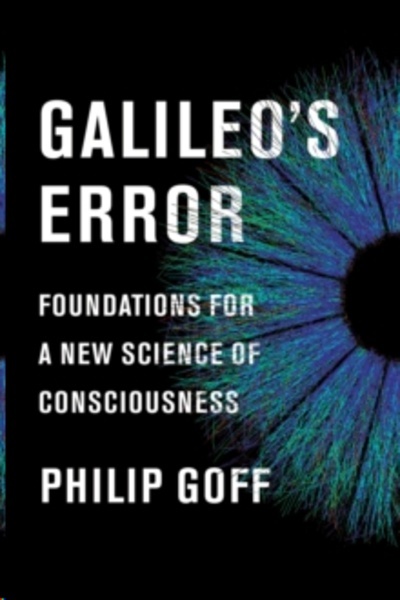Galileo's Error : Foundations for a New Science of Consciousness

Editorial Random House UK
Fecha de edición noviembre 2019 · Edición nº 1
Idioma inglés
EAN 9781524747961
256 páginas
Libro
encuadernado en tapa dura
Resumen del libro
From a leading philosopher of the mind comes this lucid, provocative argument that offers a radically new picture of human consciousnesspanpsychism.
Understanding how brains produce consciousness is one of the great scientific challenges of our age. Some philosophers argue that consciousness is something "extra," beyond the physical workings of the brain. Others think that if we persist in our standard scientific methods, our questions about consciousness will eventually be answered.
And some even suggest that the mystery is so deep, it will never be solved. Decades have been spent trying to explain consciousness from within our current scientific paradigm, but little progress has been made.
Now, Philip Goff offers an exciting alternative that could pave the way forward. Rooted in an analysis of the philosophical underpinnings of modern science and based on the early twentieth-century work of Arthur Eddington and Bertrand Russell, Goff makes the case for panpsychism, a theory which posits that consciousness is not confined to biological entities but is a fundamental feature of all physical matterfrom subatomic particles to the human brain.
In Galileo's Error, he has provided the first step on a new path to the final theory of human consciousness.
Biografía del autor
PHILIP GOFF es profesor de Filosofía en la Universidad de Durham. Su investigación se centra en la conciencia y la naturaleza última de la realidad. Defensor del panpsiquismo, es autor de Consciousness and Fundamental Reality (Oxford University Press, 2017) Galileo's Error: Foundations for a New Science of Consciousness (Pantheon, 2019), y Is Consciousness Everywhere? Essays on Panpsychism (Imprint Academic, 2021). Es colaborador de medios como Scientific American, The Guardian, Aeon y Times Literary Supplement.








